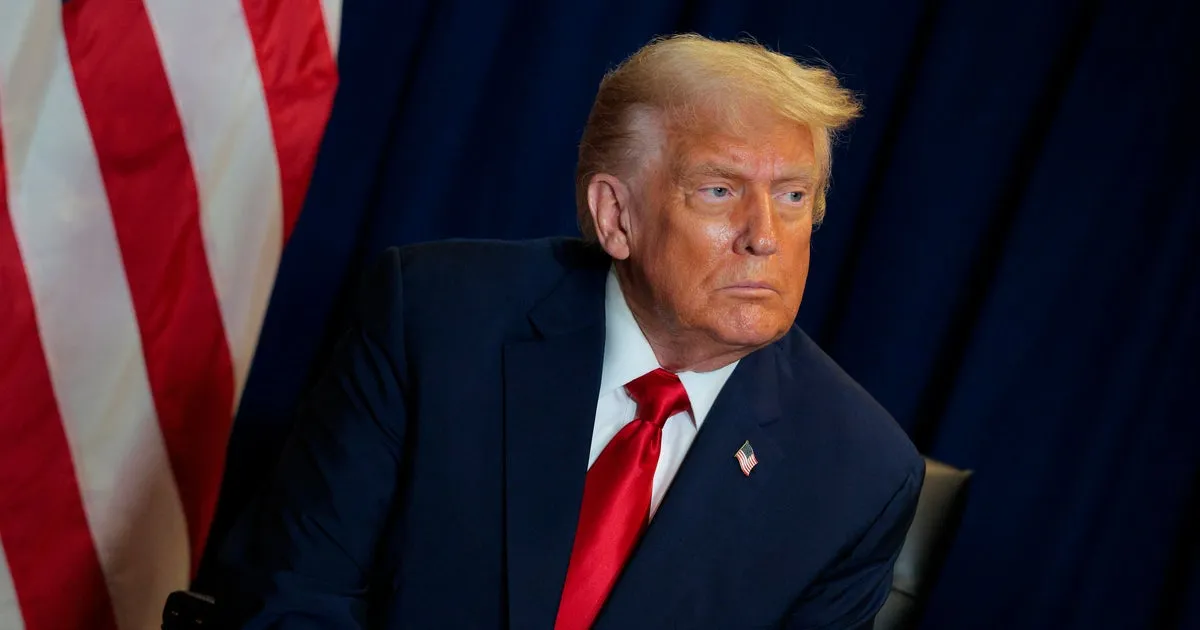
In a landmark ruling, a federal judge in Massachusetts has determined that Homeland Security Secretary Kristi Noem and Secretary of State Marco Rubio violated the First Amendment by targeting pro-Palestinian students for deportation. This decision, delivered by U.S. District Judge William Young on Tuesday, highlights the administration's attempts to intimidate international students and suppress lawful speech.
Judge Young's comprehensive 161-page decision criticizes the actions of the Trump administration, particularly regarding its treatment of international students expressing pro-Palestinian views on college campuses. He emphasized that such expressions are protected under the First Amendment, which safeguards freedom of speech. The judge, appointed by former President Ronald Reagan, did not hold back in his condemnation of both Noem and Rubio, as well as President Trump, whom he accused of endorsing a "scandalous and unconstitutional" suppression of free speech.
In his ruling, Judge Young articulated a profound concern regarding the Trump administration's approach to dissenting speech. He noted that the president's misunderstanding of the limits of government retribution against disfavored speech poses a significant threat to the freedom of speech enjoyed by all Americans. He accused Noem and Rubio, along with other officials, of using their extensive powers to target noncitizen pro-Palestinian activists for deportation, primarily due to their protected political speech.
The ruling followed a nine-day trial that scrutinized whether the Trump administration had infringed upon the free speech rights of academic associations. These associations had sued over the arrests, detentions, and deportations of foreign students and faculty involved in pro-Palestinian demonstrations. Judge Young praised the testimonies of government witnesses, describing them as "decent, credible, dedicated nonpartisan professionals," yet he accused Noem and Rubio of acting with "invidious intent" to suppress dissent.
One particularly alarming aspect of the case involved the use of masked agents by immigration authorities to detain students, including Tufts University doctoral student Rumeysa Ozturk. Judge Young condemned these tactics as a means to instill fear among the public, stating that masks are synonymous with cowardice and have no place in law enforcement. His ruling highlights the troubling implications of such actions for freedom of speech and civil liberties in the United States.
In an unusual move, Judge Young addressed an anonymous threat sent to his chambers, placing it at the forefront of his opinion. The postcard, dated June 19, questioned his authority while the judge reaffirmed his commitment to duty and the Constitution. He invited the anonymous sender to observe court proceedings, emphasizing the importance of civic engagement.
Concluding his decision, Judge Young issued a scathing critique of President Trump's behavior and the changes he has implemented within the executive branch since taking office. The judge pointed out that Trump appears to engage in "hollow bragging," disregarding constitutional and civil laws while bullying dissenters. He noted that Trump's actions have led to a chilling effect on free speech, where law firms and educational institutions hesitate to oppose the administration out of fear.
Judge Young's ruling is a significant affirmation of First Amendment rights and a rebuke of attempts to undermine them. As he concluded, the judiciary has stood firm against the Trump administration's efforts to infringe upon the rights of those who speak out against it. The ruling serves as a reminder of the ongoing struggle to protect free speech and holds the potential to inspire future legal challenges against similar governmental overreach.
As of now, both Noem and Rubio have not responded to requests for comment regarding the ruling. This case stands as a critical moment in the ongoing discourse surrounding free expression, especially within academic settings, and highlights the importance of vigilance in safeguarding constitutional rights.